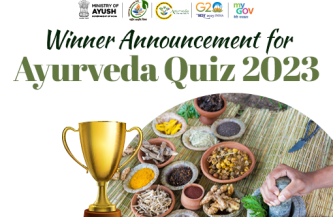Key takeaways from the PM’s address at International Conference on Consumer Protection

Consumer awareness about their legitimate rights has been constantly growing in the recent times. Considering the consumer protection movement as a part of global recognition, Prime Minister Narendra Modi inaugurated the two days International Conference on Consumer Protection for East, South, South East and Asian Nations on the theme “Empowering Consumers in New Markets”. The event is the first of its kind in South Asia and aims at shared learning that will help in exploring a way forward for enhanced regional cooperation on the subject.
International Conference on Consumer Protection was organised by the Department of Consumer Affairs with the association of United Nations Conference on Trade and Development (UNCTAD). A total of 22 countries from east, south and south East Asia, which account for a majority of the global consumers and share common challenges and experiences, participated.
Here are some of the crucial excerpts from the PM’s speech while he inaugurated the International conference on consumer protection:
- Consumer protection has been an integral part of governance for ages in India. Consumers’ protection finds mention in our Vedas written thousands of years ago.
“इमा मात्रा मिमीम हे यथ परा न मासातै”.
This means that nobody should be involved in malpractices of quality and measurement.
- India is one of the first few countries to legislate Consumer Protection Act in 1986, just one year after adoption of UN Guidelines.
- Protection of consumer interests is a priority of the government. This is also reflected in our resolution of the New India. Moving beyond Consumer Protection, New India will have Best Consumer Practices and Consumer Prosperity.
- Today we are in process of enacting a new Consumer Protection Act keeping in view the business practices and requirements of the country. The proposed Act lays great emphasis on consumer empowerment.
- The Government has enacted the Real Estate Regulatory Act for the protection of home buyers. After RERA, only registered developers can seek bookings only after getting all the required permissions. Moreover, booking amount has been fixed only at 10 per cent.
- Government has made a stringent provision that 70 per cent of the payment received from buyers will be kept in an “Escrow” account and this amount will be spent on project one has selected.
- The Bureau of Indian Standard Act has also been enacted. Now any commodity or service related to public or consumer interest can be brought under compulsory certification. This Act also has provisions to order recall of substandard products from the market and for compensation in case of loss or damages incurred by the consumer.
- India has also implemented Goods and Services Tax-GST. After GST, dozens of different types of indirect taxes in the country have been abolished. Consumers are now aware about the taxes paid to the State and Central Government.
- The capacity of the National Consumer Helpline has been increased 4 times. Portals and Social Media associated with Consumer Protection have also been integrated.
- Interests of consumers are not protected by merely giving them rights. In India schemes are being formulated which help consumers save money. The poor and middle class in the country is benefitted most from these schemes.
- UNICEF recently announced findings of a survey in India which showed that medical costs averted, value of time savings and mortality averted, financial savings for each household in Open Defecation Free communities are Rs. 50,000 per year.
- Bhartiya Jan Aushadhi Pariyojna has been launched to provide affordable medicines to the poor. More than 500 medicines have been included in the list of essential drugs and their prices have been reduced. Recently, prices of knee implants have also been brought under control.
- Ujala is another example of monetary saving in Consumer Interest. The scheme alone has caused saving of more than Rs. 20 thousand crores for consumers by reducing the cost of LED bulb and through reduction in electricity bills.
- By strengthening the Public Distribution System through technology, it is also being ensured that the poor, who have the right to affordable food grains, get their due.
- Under the Direct Benefit Scheme, by transferring the money directly into the beneficiaries’ bank accounts the government has prevented leakage of more than Rs. 57 thousand crores.
- Under Give-it-up campaign, more than one crore people have given up their gas subsidy. The savings thereon have been used in giving free gas connections to 3 crore households so far.
- The Government is implementing Prime Minister Rural Digital Literacy Campaign for Digital Empowerment of Consumers living in rural areas of the country. Under the scheme, one person each from 6 crore households is being made digitally literate. This campaign will facilitate villagers for electronic transactions and availing Government services digitally.
- Unified Payment Interface-UPI has given the e-commerce industry a lot of strength. Bharat Interface For Money – i.e. BHIM App has expanded digital payments in cities as well as in rural areas.
- Make in India is offering a platform to Global Companies to produce in India and to make better use of our huge human resource.
With increasing globalization, the world is shifting into a single market. Recognizing the fact, PM Modi said “Hence there is a significant need to learn from other’s experiences, to explore the points of common understanding and to discuss the possibility of building a Regional Coalition for Consumer Protection through such an event”. He showcased a strong sense of desire to succeed in institutionalizing regional cooperation through the conference.

















